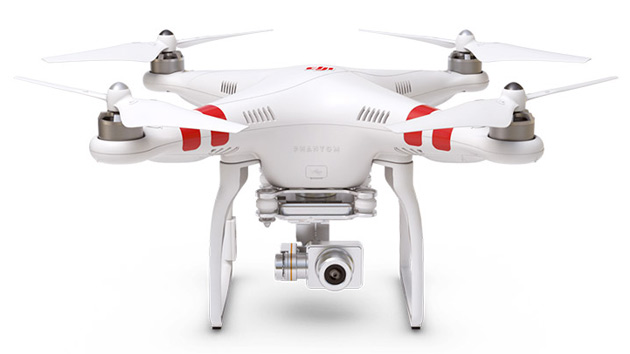FAA Seems Ready to Announce Onerous Rules for Camera Drone Operators
Filmmakers looking to use lightweight drone-mounted camera systems for affordable aerial cinematography got some good news and some bad news from the Federal Aviation Administration last week. The good news is the FAA is reportedly finally ready to propose rules for legal commercial use of unmanned aircraft such as the DJI Phantom 2 Vision+. Flights are likely to be limited to daylight hours and restricted to 400 feet in altitude within sight of the person controlling the drone. The bad news? The FAA wants to require that all operators of commercial drones be certified to fly manned aircraft in addition to tiny drones.
That's right — according to a report first published in The Wall Street Journal, the FAA is likely to propose new certifications that would require anyone who wants to fly a DJI Phantom quadcopter commercially to log "dozens of hours flying manned aircraft" as part of their pilot training. That's because the FAA plans to create one regulation covering all drones up to 55 pounds in weight. That includes the Phantom 2 Vision+, which weighs just 2.8 pounds with battery and propellers. That's a little like making a 16-year-old become licensed to operate an 18-wheeler before being allowed to tool around town in a Honda Civic.
The reason drone technology is exciting to filmmakers is that it's inexpensive and widely accessible. Certain aerial shots that would have been out of reach by a production that couldn't afford a helicopter pilot can be easily and safely accomplished with a quadcopter. A handful of aerial production companies have already received exemptions from the FAA allowing them to use the drones in the U.S., under limited conditions, with dozens more requests still being evaluated.
And as decisions are being made about which production companies are and aren't allowed to fly drones, those regulations are raising First Amendment concerns. In an article for Slate, assistant professor of law Margot E. Kaminski laid out the free-speech complications that may face the FAA as it seeks to regulate an important new tool for newsgathering and, thus, constitutionally protected speech.
Finally, it may be illegal to fly drones commercially in the U.S., but that doesn't mean people aren't doing it. A broad swath of independent filmmakers has already discovered the advantages of drone videography, and The New York Times ran a story about their ubiquity among wedding videographers — even the one documenting this summer's wedding of New York's Democratic Representative Sean Patrick Maloney, who sits on the subcommittee that oversees the FAA and thus probably should have known better.
Did you enjoy this article? Sign up to receive the StudioDaily Fix eletter containing the latest stories, including news, videos, interviews, reviews and more.
